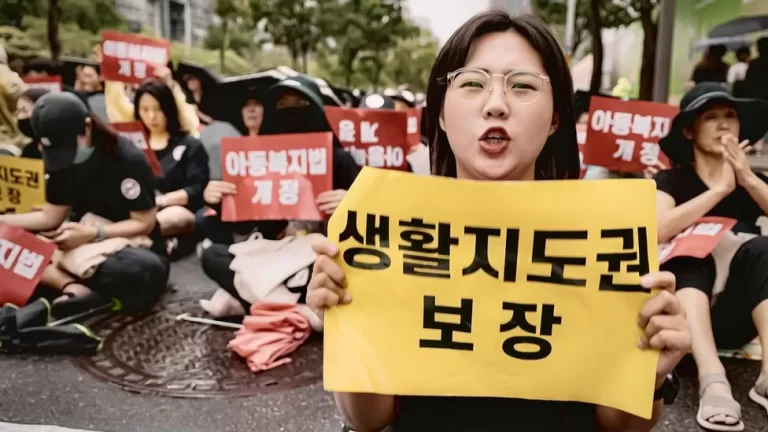South Korea has passed a new law to better protect schoolteachers from complaining parents.
Teachers nationwide have been protesting for nine weeks, demanding more rights in the classroom. They say they are frequently harassed by parents who sometimes maliciously report them for child abuse, to see them removed from their jobs.
Some say they have been reported for restraining a violent child, or criticised for telling a pupil off. The teachers accused parents of exploiting a child welfare law, passed in 2014, which dictates that teachers accused of child abuse are automatically suspended.
Under the new legislation, called the Teacher Rights Restoration Bill, teachers will not be immediately removed following a report of child abuse; further investigation and evidence will be required.
Financial support will also be made available to teachers fighting lawsuits, and there will be more responsibility on head teachers to protect their staff.
The protests erupted after the suicide in July of a 23-year-old primary school teacher, who had been dealing with complaints from parents. Teachers claimed the culture of malicious complaints had left them unable to teach or discipline their students.
The Korean Federation of Teachers' Unions welcomed the new legislation, saying they would both “expand the right to teach and protect students' right to learn”.
The union expressed its “deepest gratitude” to the teachers who took to the streets eight weeks in a row, demanding better conditions, and said today's achievement was down to their strength. In recent weeks, the government and local authorities had already brought in a series of measures to protect teachers and make it easier for them to do their jobs, but none legally binding.
New government guidelines, introduced earlier this month, stipulate that teachers are allowed to remove disruptive students from the classroom and restrain them if necessary. In addition, the Seoul Office of Education announced plans this week to record all calls made to teachers by parents, and to install a chatbot to act as the first line of defence for parent's complaints.
Some teachers, however, have argued the new laws do not go far enough.
The chairperson of the Korean Federation of Teachers' Unions, Kim Yong-seo, called the new legislation “a great step forward in protecting teachers and students”, but said there were areas that still needed improving.
He called on politicians to amend the Child Welfare Act, arguing that it should not be possible for merely disciplining pupils to be labelled as child abuse. Some teachers also want parents who make false accusations of child abuse to be penalised.
Kim Jin-seo, a 28-year-old teacher who first spoke to the BBC at one of the protests, said the new law would not stop unfounded reports of child abuse, because without repercussions, parents would continue to maliciously accuse teachers they did not like.
South Korea's hyper-competitive society is seen as partly to blame for the culture of harassment by parents. Academic achievement is considered the best marker for success, meaning students compete fiercely for the best grades from a very young age to get into the country's top universities.
— CutC by bbc.com


